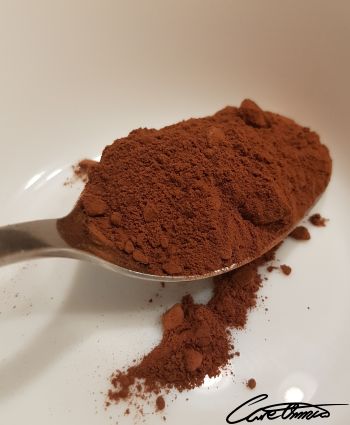What Is Magnesium & What Foods Can I Find It In?

Magnesium is an essential major mineral.
It plays many important roles in your body.
Many people consume less than recommended amounts of magnesium, which can lead to magnesium inadequacy or magnesium deficiency, which puts their health at risk.
An adult body contains about 25g of magnesium inside our bones and cells.
Magnesium is found in a vide variety of foods, like plants, animal foods, and beverages. Both naturally and in fortified foods.
Table of Contents
Magnesium Is An Essential Mineral
Magnesium deficiency is a worldwide problem.
Magnesium is an essential mineral required as a cofactor for over 300 enzymatic reactions in the human body.
Magnesium is the fourth most common mineral in the human body after calcium, sodium, and potassium.
It is necessary for our body to function properly. (source ◳)
Benefits Of Magnesium
Magnesium possesses so many vital health benefits for us.
Magnesium is important in over 300 biochemical reactions in the body, including those that support muscle function, bone density, heart health, and immune system health.
It is our body’s primary antioxidant, which protects against oxidative stress that can lead to chronic disease.
Magnesium also plays a major role in the maintenance of energy metabolism, blood pressure regulation, and the regulation of appetite and sleep cycles.
You find all of them in Magnesium, Mg: 14 Research-Backed Benefits , where you can see if magnesium can do anything for you.
Deficiency Of Magnesium
Low intakes of magnesium induce changes in biochemical pathways that can increase the risk of illness over time.
Nearly two-thirds of the population in the western world is not getting enough magnesium daily.
It leads to deficiency with various health conditions of both physical and mental health problems. (source ◳)
Magnesium deficiency is one of the major health issues that can be treated with daily use of magnesium-containing foods.
Magnesium deficiency can cause:
- Depression
- Fatigue
- Insomnia
- Chronic fatigue
- Muscle cramps
- Muscle spasms
Too Much Magnesium
Too much magnesium from food does not pose a health risk in healthy individuals because the kidneys eliminate excess amounts in the urine.
But high doses of magnesium from dietary supplements or medications often result in bowel intolerance, such as diarrhea as the first sign of excess.
Very large doses of magnesium have been associated with magnesium toxicity. However, that is very rare. (source ◳)
How To Get Enough Magnesium?
Magnesium is commonly found in plants, animal foods, and beverages.
Magnesium is found in foods like nuts, legumes, leafy green vegetables and dairy. But is also added in fortified foods.
Approximately 30% to 40% of the dietary magnesium consumed is absorbed by the body. (source ◳)
Magnesium supplements
Supplementation is an alternative if you have a hard time getting enough magnesium from your diet.
But you need to get just the right amount of the nutrient that you require.
Too much magnesium from supplements can have side effects, and too little can be ineffective.
Foods You Can Find Magnesium, Mg In
You find Magnesium, Mg mostly in cereal and pasta, vegetable, nut and seed, spices and herb products.
Examples of food sources include
Foods in our nutrition tool
You can find regularly updated top-ranked lists of foods for over 200+ nutrients in our nutrition tool.
If you are interested in what foods contain the most Magnesium, Mg we recommend you visit our tool.
Here's our top-ranked list of foods that contain Magnesium, Mg.

